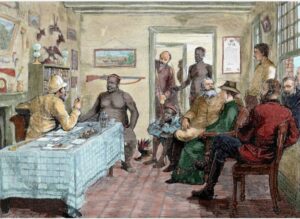 |
|
historical state, United Kingdom
|
Post-colonialism is a complicated and complex field of study that looks at the getting through traditions of expansionism and its effect on societies, social orders, and people all over the planet. With regards to the Unified Realm, Post-colonialism talk digs into the unpredictable connection between the UK’s pioneer past and its present-day multicultural society.
The UK’s colonial legacy
The UK’s colonial domain was once one of the most broad and strong on the planet, including regions across Africa, Asia, the Americas, and Oceania.This colonial extension carried huge financial and political advantages to the UK, however it additionally brought about the abuse, removal, and mistreatment of endless native people groups.
The legacies of colonialism keep on resounding in the UK today, forming the country’s social scene, social texture, and financial designs. Post colonialism looks for on comprehend and address these heritages, advancing a more comprehensive and impartial society.
Key Subjects in Post-Colonial Discourse
Post-Colonial Discourse envelops many topics, including:
 |
| South Africa. Conference held between Ottam and the English colonel Rudolph. |
Social Character and Portrayal:
Post-colonialism challenges Eurocentric ideas of social prevalence and investigates the assorted social personalities of individuals from previously colonized countries.
Power Elements and Disparity:
Post-colonialism looks at the proceeding with power lopsided characteristics between previous colonial powers and their previous provinces,featuring the continuous impacts of double-dealing and minimization.
Decolonization and Self-Assurance: Post-colonialism advocates for the decolonization of brains and organizations, accentuating the significance of self-assurance and social sway.
Language,discourse, and Portrayal: Post-colonialism basically dissects the utilization of language and talk to propagate colonial power structures and minimize non-Western voices.
 |
| Henry Morton Stanley (1841-1904) and David Livingstone (1813-1873) on Lake Ngami. |
Effect of Post-colonialism in the UK
Post-colonialism significantly affects the UK, prompting expanded consciousness of the country’s provincial past and its continuous ramifications. It has additionally added to:
More prominent Acknowledgment of Variety: Post-colonial talk has cultivated a more comprehensive comprehension of English character, recognizing the commitments of individuals from different foundations.
Basic Commitment with colonial History:
Post-colonialism has supported a more basic assessment of the UK’s provincial past, testing Eurocentric stories and perceiving the damages of imperialism.
Endeavors to Address colonial Inheritances:
Post-colonialism has roused drives to address the getting through traditions of colonialism, like bringing home of relics and restitutions for verifiable treacheries.
Difficulties and Future Bearings
Regardless of the headway made, present colonialism progresses forward with face difficulties in the UK, including:
 |
| Governor Maxwell returns to Cape Coast Castle, from Cumasia. |
Persistent colonialism Attitudes:
Eurocentric mentalities and post colonialism generalizations stay predominant, obstructing endeavors towards genuine decolonization.
Standardized Disparities: The UK’s social, financial, and political establishments frequently reflect colonialism power structures, propagating disparities and drawback for minority gatherings.
Tending to the Tradition of Prejudice: The UK’s colonial past has added to profoundly instilled racial biases, requiring progressing endeavors to battle prejudice and segregation.
Pushing ahead, post-expansionism in the UK calls for:
 |
| Map of the World showing the British Empire highlighted in red, London, 1886. |
Proceeded with Schooling and Mindfulness: Progressing training about expansionism and its inheritances is critical for cultivating a more comprehensive and fair society.
Comprehensive Portrayal and Interest: Minority gatherings ought to have equivalent portrayal and cooperation in all parts of society, including dynamic cycles.
Tending to Institutional Disparities: Primary changes are expected to address the regulated imbalances that propagate the traditions of colonialism.
Basic Commitment with Social Legacy: Fundamentally looking at and dismantling Eurocentric stories in social foundations is fundamental for advancing a more comprehensive and delegate social scene.
 |
| Elephants in the Swallows of the Shire River The Steam launch Firing’ by Thomas Baines (27/11/1820 8/5/1875), an English artist and explorer of British colonial southern Africa and Australia |
References and Links
1.”The Postcolonial Condition,” by Homi Bhabha
2.”Decolonizing the Mind: The Making of Modern Global Diasporas,” by Walter Mignolo
3.”The Empire Writes Back,” edited by Bill Ashcroft, Gareth Griffiths, and Helen Tiffin
4.”The Politics of Presence: Blackness in the UK,” by John Solomos
5.”Postcolonialism: A Critical Introduction,” by Ania Loomba
Conclusion.
Post-colonialism offers a critical lens through which to understand the UK’s complex relationship with its colonial past and its present-day multicultural society. By engaging with post-colonial discourse, we can work towards a more just and equitable society that embraces diversity and acknowledges the lasting effects of colonialism.


I have recently started a website, the info you provide on this website has helped me tremendously. Thanks for all of your time & work. “The word ‘genius’ isn’t applicable in football. A genius is a guy like Norman Einstein.” by Joe Theismann.